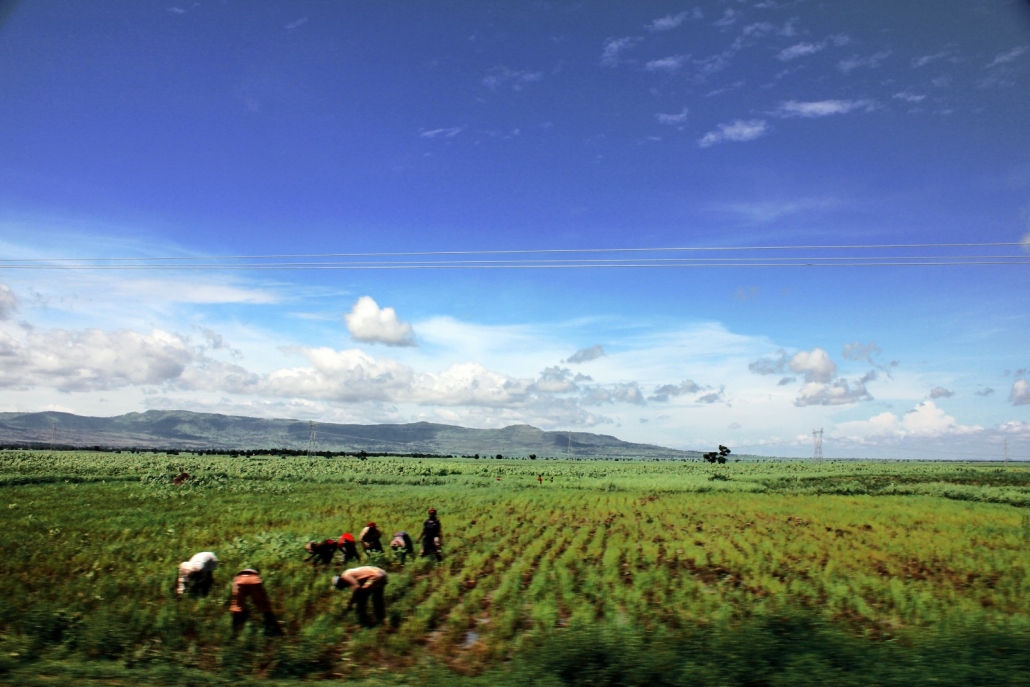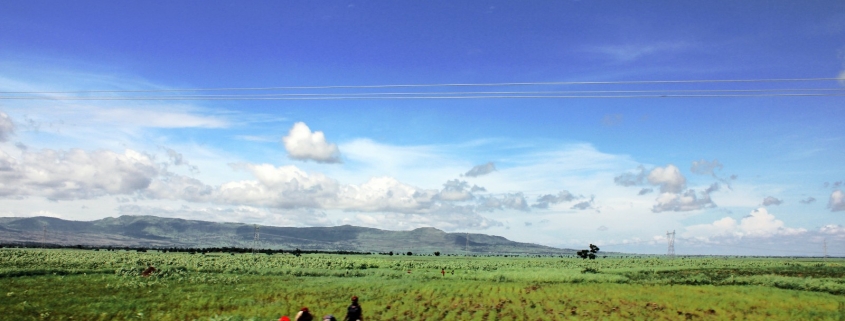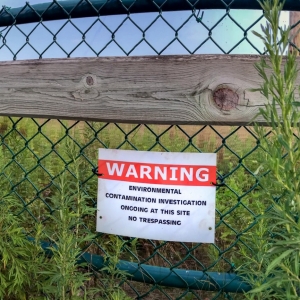HotSpots H2O: Farmer-Herder Violence in Nigeria’s Middle Belt Persists, a Consequence of Drought and Climate Change

A farm in Nigeria’s Middle Belt. Photo © Immanuel Afolabi
Christian Thorsberg, Circle of Blue
Nigeria’s central states, a region referred to as the Middle Belt and nicknamed the country’s “food basket,” have been overwhelmed with violence for the better part of a decade. Videos posted on social media show exasperated farmers burning the homes of nomadic herdsmen, newcomers to the Middle Belt in search of fertile land. In other footage herdsmen are seen retaliating, releasing stampedes of cattle to graze on crops, ruining farmers’ harvests. And in other accounts, direct and devastating violence, by and against both sides, is proof of the escalation of the farmer-herder conflict. Researchers at the International Crisis Group say that more than 10,000 people have been killed, and 300,000 people displaced, in Nigeria’s Middle Belt this past decade.
The conflict is a consequence of extreme heat and worsening droughts, byproducts of climate change, which bruises Africa’s Sahel region and nearby countries more deeply than almost anywhere else in the world. Temperatures here are rising 1.5 times faster than the global average. The land has become too arid to absorb water, so when seasonal rains do occur, they trigger abounding flash floods and landslides. Traditional open-well water reserves and irrigation systems are a struggle to maintain amid inconsistent precipitation.
This all is a burden, to say the least, for residents of the Sahel and Nigeria, where over two-thirds of the population depends on agriculture or livestock for their livelihoods. Scarce resources are compounded by an influx of people. Violent attacks by the Boko Haram insurgency and booming population growth in northern Nigeria have pushed herdsmen south into the Middle Belt. In the middle states of Benue, Plateau, Adamawa, Nasarawa, and Taraba, the herdsmen–most of whom are Fula, or of Fula descent– encounter an established farming community. According to the International Crisis Group, the deadliest interactions between herders and farmers occur on the grassland borders that separate the two groups’ lands.
“The herders have to move from point A to point B in search of greener pasture. But their cattle route is often blocked by farmers, who get angry and attack the herders,” Salihu Musa Umar, a member of one of the biggest pastoralists’ associations in Africa and founder of The Farmers and Herders Initiative for Peace and Development, told France 24 Observers. “When these attacks take place, there is no justice, and so the herders feel cheated and begin reprisal attacks. It is an endless spiral.”
Critics say the Nigerian government’s tepid response has encouraged vigilante justice and fueled ongoing violence. In 2019, the government released its National Livestock Transformation Plan, which proposed a shift from free-roam herding to confined grazing reserves in areas that have experienced the most violence. But two years later, these plans are already behind schedule. In Nasarawa, where seven reserves are planned, the questions of cultural change and feasibility persist. Will herders easily accept a fundamental shift in their practice? Will widespread reserves be ready by 2028, the date put forth by the plan?
Despite bureaucratic dawdling, the pressure of population and climate will not suddenly stop. Nigeria’s fertile “food basket” continues to grow warmer, with unpredictable rain events compounding this conflict’s complex entanglement of tension.
“There’s an ethnic dimension to it because most herdsmen are Fulanis,” Oladosu Adenike, a Nigerian ecofeminist and climate activist, told Vice. “There’s a religious dimension. There’s a political dimension. But if you decide to drop labels and view it holistically, this is a fight for survival, a fight for dwindling resources due to climate change.”
Christian Thorsberg is an environmental writer from Chicago. He is passionate about climate and cultural phenomena that often appear slow or invisible, and he examines these themes in his journalism, poetry, and fiction.







Leave a Reply
Want to join the discussion?Feel free to contribute!